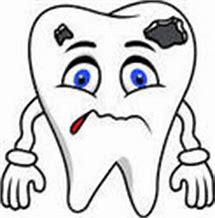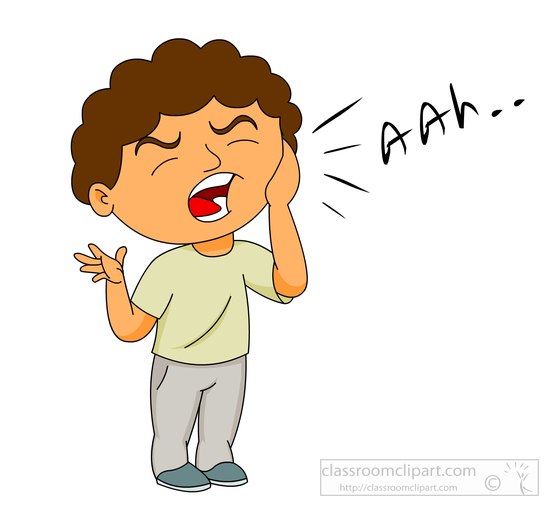
Healthy teeth might be something you don’t think about until they are (for whatever reason) no longer healthy. While some people are more susceptible to tooth decay than others, you can take some basic steps to keep your teeth healthy, such as brushing regularly and attending dental appointments every six months. But certain pitfalls also exist that can be damaging to your teeth, and they aren’t all that uncommon, either.
Read through these seven tooth-health hazards to see what you might need to change in your dental care routine.
Biting nonfood items
Although your teeth may be sharp, they aren’t meant for tasks like tearing open plastic packaging or chewing on fingernails. Incidentally, biting nails can also even lead to gingivitis and tooth loss, according to oralanswers.com. While sharp, the tip of each tooth is the thinnest and weakest part, so it's subject to chipping or even breakage if you’re chewing and tearing things that aren’t food.
Ice is another hazard to teeth. Although it’s made of water (no sugar!) it still has a very hard surface that can harm tooth enamel or even cause a broken or chipped tooth. Remember, ice is for chilling, not chewing!
Acidic and sticky foods
We all know candy is sticky and sugary and increases the risk of cavities, but other healthier foods might be just as damaging. Fruit smoothies and juicing are two health fads that are increasingly popular. While these concoctions are high in vitamins and minerals, their sugar and acid content is also high, which can be a problem for teeth, according to a BBC news report.
It’s best to sip these drinks through a straw, along with plenty of plain water to rinse your mouth afterward. And, as always, keep your intake moderate.
Dried fruit and gummy vitamins may seem healthy, if not harmless, but they too can mean bad news for your teeth. Sticky substances that remain on the tooth break down to form acids that start the decaying process. Rinse well after eating dried fruits, and stick with sugar-free or pill-form vitamins.
Caffeine and alcohol
It’s fairly common knowledge that soda is bad for your teeth due to the high amount of sweeteners, carbonation (which erodes enamel) and caffeine, which can dry out the mouth. Dentalhealth.org explains that a dry mouth is one that’s especially vulnerable to decay because your saliva acts as a rinsing agent that helps clear off harmful bacteria. But are there other drinks that dry out your mouth?
Coffee and tea aren't all bad, but they can become a problem when consumed with too much sugar. Sugary add-ons and the drying effects of caffeine to your mouth mean additional risks of cavities. Again, limit added sugars, drink through straws and drink water to rinse your mouth afterward as much as possible.
Consistent alcohol use without extra care can also damage your smile. Much like caffeinated beverages, alcohol reduces the flow of saliva in your mouth. Heavy drinking also increases the risk of oral cancers. This happens when nutritional deficiencies associated with heavy drinking can lower the body’s ability to use antioxidants in preventing cancers, according to the Oral Cancer Foundation.
Overdoing it on brushing and flossing
Just as a lack of dental hygiene can be harmful to your teeth, becoming overzealous in your routine can also be damaging. Those who use a tough-bristled brush and repetitive back-and-forward motions, described at oralwellness.com, may be wearing away enamel and even contributing to receding gums.
Instead, learn to use a soft-bristled brush with a small lateral brushing pattern at a 45-degree angle to the tooth and gumline. Make sure to be careful when flossing so you don't damage your gums, too.
Grinding or clenching teeth
In a stressful and fast-paced society, it’s easy to store your stress in undesirable places. It’s for this reason that more and more people are experiencing problems caused by grinding or clenching their teeth at night. You may not even be aware you are doing it, but facial and jaw soreness in the morning is a telltale sign, according to the Mayo Clinic’s article on bruxism. Waking up with clenched teeth is also a clue.
Grinding and clenching your teeth (whether during the day or night) can result in significant enamel erosion and even cracking or chipping of your teeth over time. If you think you might have this problem, talk to your dentist about getting a specially made mouthguard to prevent further damage.
Drug abuse
Add tooth loss and tooth decay to the long list of reasons abusing drugs is bad for your health.
"You may have noticed that many drug addicts have bad teeth," WebMD reports. "That's because drugs such as methamphetamine (meth), heroin, cocaine, ecstasy, and even marijuana can cause problems for your teeth and gums."
One study cited showed 96 percent of meth users had cavities and the term "meth mouth" is used to refer to the condition of stained and damaged teeth.
Poor dental hygiene and ignoring problems
Usually, tooth pain is enough to get people in to see their dentist, but not always. Some people might have a swollen gum here or a sensitive tooth there that they might deem to be “not a problem.” But as with anything in dental health, it’s always better safe than sorry. Problems from decay, hygienic neglect or some other issue will worsen and cause more damage if left unchecked.
What starts as a small cavity can spread to the tooth’s root and result in a root canal or even total tooth loss. Gum infections and gum disease are also left to continue all too often, with devastating results.
As always, Please contact our office with any and all questions and concerns you may have regarding your oral health.
 Dental Implant Procedure Steps: What to Expect?
Dental Implant Procedure Steps: What to Expect?


